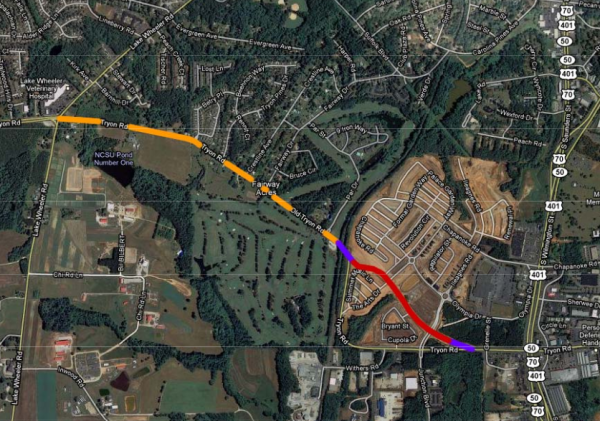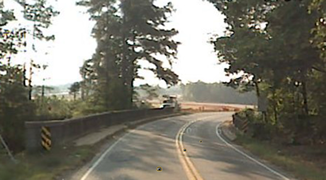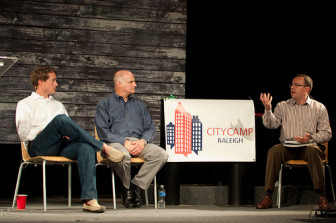The realignment of Tryon Road, a project being undertaken by the North Carolina Department of Transportation, will cost a total of $7.8 million dollars, Southwest CAC attendees learned at a meeting held June 8.
David Moore, an engineer with NCDOT, said the project, U-4432, which began in March of 2015, will likely continue through the end of September, 2017.

Anthony McLeod
The Tryon Road Project
The project, nearly a mile in length, widens Tryon Rd (SR 1370) from the Norfolk Southern Railroad, near Par Drive to Wilmington Street. The project runs through the Renaissance Park Neighborhood.
Moore explained that the city of Raleigh is expected to fund a portion of the project, although it will not be voted on as a budget item until July. Once the state completes the bridge work for the project, the city of Raleigh is anticipated to take over completion.

The bridge in question
Lane closures for the project, will, from here on out, Moore said, occur only at night. In the fall, traffic will be switched to the new portion of the bridge. The old one will be demolished and construction on a second bridge will begin.
“This project will be a great improvement for the area,” Moore said.
Area residents seem to agree, and have created a petition in favor of the project.
Traffic Calming
The Tryon Road realignment wasn’t the only transportation-related item discussed at last week’s Southwest CAC meeting, as members also voted in favor of two traffic-calming projects, both on Tryon Road.
The first was to reduce the speed limit at the bridge involved with the Tryon Road project from 45 to 35.
The second would add a traffic signal at the intersection of Tryon and Fairway Drive.
Other Business

CityCamp NC
CityCamp NC
Jason Hibbets, a past CAC Chair and the current co-chair for CityCampNC, made a brief presentation to the Southwest CAC on plans for CityCamp’s upcoming “UNConference,” which was held the weekend of June 12.
The philosophy of the progam, Hibbets said, is an “open government community focused on collaboration, participation, and transparency.”
“CityCamp is an un-conference focused on innovation for municipal governments and community organizations,” he said.
“CityCamp is not programmed for a passive audience. Instead, content is created and organized by participants and coordinated by facilitators.
“Participants are in exchange geared toward action.” This provides an excellent format for creative, open exchange geared toward action.”
